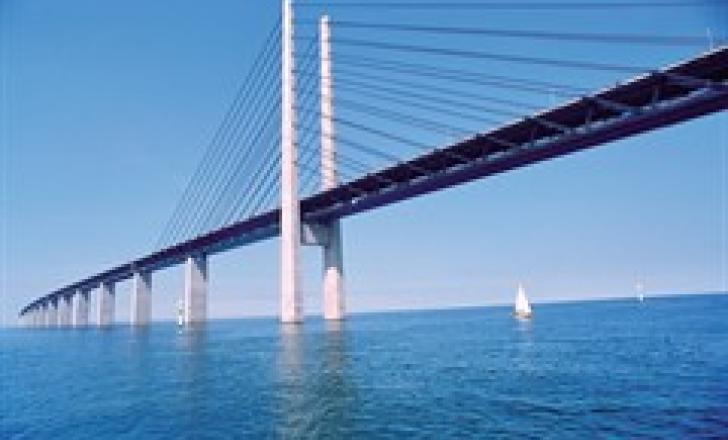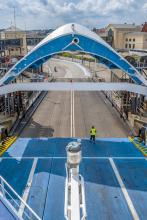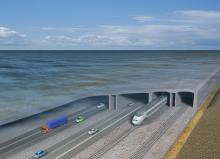
The link would cross The Øresund, a straight separating the two countries that is only 6.7km wide between the Danish city of Helsingør and the Swedish city of Helsingborg.
Investigations, likely to cost around €2.3 million including €1 million from the European Union, will start this month with a final report by 2020.
The completion in 2000 of the Øresund Bridge to the south, linking Copenhagen and Malmö, lessened the importance of Helsingør and Helsingborg ferry link but they ships still operate almost non-stop on this short route. The vessels carry man foot-passengers looking for days out in the two cities. For many drivers the ferry crossing saves driving distance compared to using The Øresund toll bridge.
Helsingør, known in English as Elsinore, has a population of around 62,000 and lies 45kkm from the capital Copenhagen. The city’s Kronborg castle is believed to have been the template for the setting of Hamlet by William Shakespeare.
Helsingborg, with a population of around 140,00, lies 555km to the south of the Swedish capital Stockholm.
The Øresund – a road and rail structure - runs along an 8km cable-stayed bridge to an artificial island where it then enters a 4km-long tunnel. It features two 204m-high pylons supporting the 490m-long bridge span across the Flinte Channel. The motorway runs on the upper level while the railway runs underneath.
Most bridge structures including the piers and spans were built on land and towed into position on barges. Only the pylons were cast in situ. The Øresund is operated by both countries and was designed by Danish engineering firm








